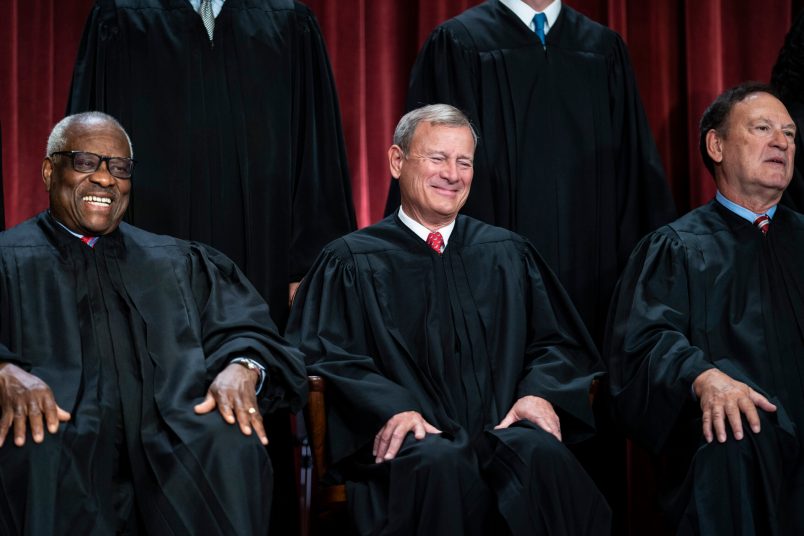Justice Samuel Alito can’t help himself.
In an unusual “statement” Friday, Alito lectured critics of his decision to grant two interviews to a right-wing commentator, advocate, and attorney with a case before the high court.
Those critics, who include Senate Judiciary Committee Chair Sen. Dick Durbin (D-IL), fail to understand “the circumstances under which Supreme Court Justices must work,” Alito explained in an addendum he wrote to orders issued by the court.
Alito went on for pages in the statement, explaining how the interview he gave to attorney and Wall Street Journal opinion contributor David Rivkin violated no ethical standards. Rivkin is representing plaintiffs in the Moore v. United States case, in which a couple is asking the court to redefine “income” for the entire U.S. tax code in order to avoid a $14,729 tax bill.
Rivkin, who didn’t return a request for comment from TPM, published the interview along with James Taranto, a Wall Street Journal opinion writer.
Durbin had asked Alito last month to recuse from the case, saying that the Rivkin interview should serve as grounds for him to remove himself from the case.
Alito refused to concede in his statement not only that there was anything unethical about his decision to do the interview with a attorney on the case as the court mulled whether to take the matter, but also that there was anything unusual about his decision to do so.
“Over the years, many Justices have participated in interviews with representatives of media entities that have frequently been parties in cases before the Court,” Alito wrote, before citing media interviews which Justices Breyer, Sotomayor, Gorsuch, and Roberts have done over the past 20 years.
Alito continued his lecture, saying that Durbin appeared to be under the mistaken impression that the Rivkin interview would somehow prejudice his treatment of the case. No, Alito averred. That would be incorrect.
Attorneys who practice before the court criticize and praise the “character” and work of justice all the time, he said. It’s not that big a deal that he gave the interview to Rivkin, even if it lavished praise on Alito as a plain-spoken justice and characterized him as willing to defend the court against political attacks. That referred to ProPublica’s extensive reporting on ethical lapses by Alito and Justice Clarence Thomas around their undisclosed relationships with wealthy benefactors.
Alito published an op-ed in the Wall Street Journal’s opinion pages in June, preemptively rebutting an explosive article that ProPublica was about to publish about Alito’s relationship with billionaire Paul Singer. Rivkin said that he did two interviews with Alito; one in April, another in July.
“In all the instances mentioned above, we are required to put favorable or unfavorable comments and any personal connections with an attorney out of our minds and judge the cases based solely on the law and the facts,” Alito wrote. “And that is what we do.”
With that, Alito declined to recuse.



